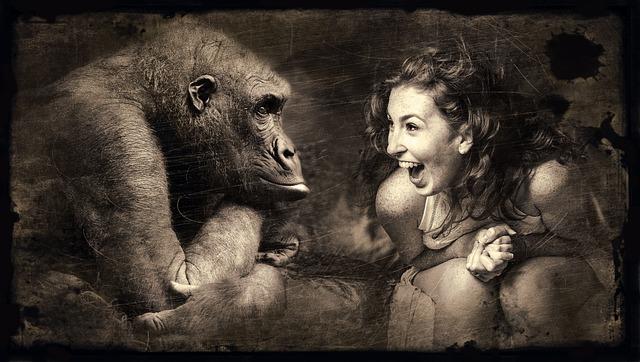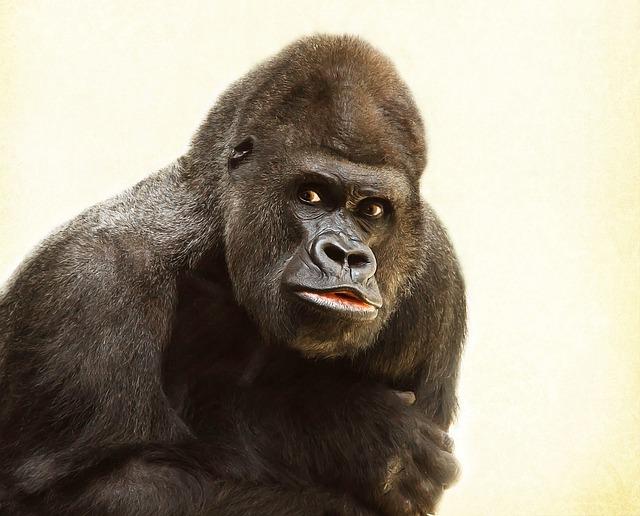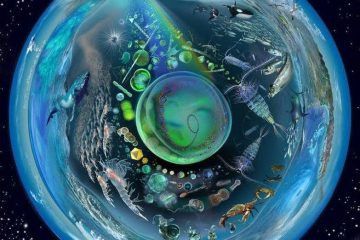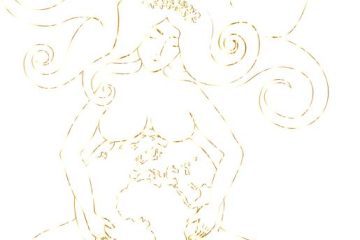In the vast tapestry of our planet’s history, threads of interconnectedness weave a story as old as time itself. The Gaia hypothesis, a theory proposing that the Earth is a self-regulating organism, challenges us to see beyond the surface of our world and delve into the complex relationships that shape our existence. Within this intricate web of life, apes hold a unique position as both observers and participants in the grand symphony of nature. Join us on a journey of exploration as we unravel the symbiotic dance between the Gaia hypothesis and our closest primate relatives, the apes.
Table of Contents
- Exploring the Deep Connection Between the Gaia Hypothesis and Apes
- Unveiling the Role of Apes in Gaia Hypothesis Ecosystem Dynamics
- Understanding how Apes Influence Gaia Hypothesis Sustainability
- Practical Ways to Support Apes and Enhance Gaia Hypothesis Awareness
- Q&A
- In Summary

Exploring the Deep Connection Between the Gaia Hypothesis and Apes
Did you know that the Gaia Hypothesis, proposed by scientist James Lovelock, suggests that the Earth is a self-regulating system? This intriguing concept posits that the Earth functions as a single organism, maintaining conditions necessary for life. The interconnectedness of all living and non-living elements on our planet plays a vital role in maintaining its stability.
Interestingly, when we explore the Gaia Hypothesis in relation to apes, we discover compelling parallels. Apes, our closest relatives in the animal kingdom, also thrive in interconnected systems within their habitats. Their behavior, social structures, and impact on their environments reflect the intricate balance and interdependence that the Gaia Hypothesis embodies. It’s fascinating to observe how these intelligent creatures interact with their surroundings, influencing and being influenced by the ecosystems they inhabit.
Unveiling the Role of Apes in Gaia Hypothesis Ecosystem Dynamics
In the intricate web of ecosystems, apes play a fascinating role in the Gaia Hypothesis. These intelligent creatures, with their innate connection to nature, contribute significantly to the balance and vitality of the environment. Through their foraging habits and movements, apes aid in seed dispersal, promoting biodiversity and supporting the growth of various plant species crucial for ecosystem sustainability.
Moreover, the social behaviors exhibited by apes, such as grooming and communication, foster a sense of community and cooperation within their groups. This interaction not only strengthens the bonds among individuals but also enhances the overall resilience of ape populations, reflecting the interconnectedness emphasized in the Gaia Hypothesis. By unraveling the intricate dynamics of ape behavior and its impact on the ecosystem, we gain a deeper appreciation for the intricate tapestry of life on Earth.
Understanding how Apes Influence Gaia Hypothesis Sustainability
Apes, the close relatives of humans, play a significant role in the intricate web of ecosystems. Their actions and interactions with the environment have sparked curiosity and contemplation about sustainability through the lens of the Gaia Hypothesis. By studying how apes influence their surroundings, researchers have uncovered fascinating insights into the interconnectedness of all life forms on Earth.
From foraging behaviors to habitat maintenance, apes contribute to the balance of nature in ways that resonate with the principles of the Gaia Hypothesis. Their impact on plant dispersal, soil enrichment, and even cultural traditions within ape communities shed light on the delicate harmony that sustains life on our planet. Understanding these dynamics can offer valuable lessons for promoting sustainability and preserving biodiversity for future generations.

Practical Ways to Support Apes and Enhance Gaia Hypothesis Awareness
One way to support apes and raise awareness about the Gaia Hypothesis is by **donating to reputable organizations** dedicated to ape conservation and environmental education. By contributing to these causes, you can help fund research initiatives, habitat protection projects, and community engagement programs that benefit both apes and the planet. Organizations like the **World Wildlife Fund** and the **Jane Goodall Institute** actively work to protect ape populations and promote a greater understanding of interconnected ecosystems.
Another practical way to show your support is by educating yourself and others about the importance of apes in the context of the Gaia Hypothesis. By learning about the significant role apes play in maintaining biodiversity and ecosystem balance, you can help spread awareness and advocate for sustainable practices that benefit both ape populations and the planet as a whole. Sharing this knowledge with friends, family, and your community can inspire collective action towards conservation efforts and foster a deeper appreciation for the intricate web of life on Earth.
| Organization | Mission |
|---|---|
| World Wildlife Fund | To conserve nature and reduce the most pressing threats to the diversity of life on Earth. |
| Jane Goodall Institute | To protect chimpanzees and inspire people to conserve the natural world. |
Q&A
Title: Exploring the Connection Between the Gaia Hypothesis and Apes: A Q&A
Q: What is the Gaia Hypothesis, and how does it relate to apes?
A: The Gaia Hypothesis proposes that Earth is a self-regulating system, like a living organism. This concept connects the intricate interactions between living organisms and their environments. When we consider apes, they play a vital role in various ecosystems, contributing to the balance and harmony of nature.
Q: How do apes influence their environment based on the Gaia Hypothesis?
A: Apes, through their daily activities such as foraging, nesting, and social interactions, shape the landscape around them. Their presence influences plant growth, seed dispersal, and even predator-prey dynamics, thus impacting the overall ecosystem.
Q: Can you provide examples of how apes demonstrate interconnectedness with nature according to the Gaia Hypothesis?
A: Certainly! Apes like chimpanzees are known to create tools for acquiring food, demonstrating their adaptability to their surroundings. Their consumption of fruits contributes to seed dispersal, aiding in forest regeneration. Moreover, by forming social bonds and hierarchies, apes contribute to the intricate web of relationships within their habitats.
Q: How does understanding the Gaia Hypothesis help in ape conservation efforts?
A: Recognizing the Gaia Hypothesis underscores the importance of preserving not only individual species but entire ecosystems. By safeguarding ape habitats, we ensure the continuation of their crucial roles in maintaining ecological balance, ultimately benefiting all life forms on Earth.
Q: In what ways can individuals support the principles of the Gaia Hypothesis in relation to apes?
A: Individuals can contribute to ape conservation by supporting sustainable practices, promoting habitat protection, and advocating for responsible tourism. By fostering a deeper understanding of the interconnectedness of all life forms, we can strive towards a harmonious coexistence with our ape relatives and the natural world.
In Summary
As we delve into the intricate web of the Gaia Hypothesis and its connection to our primate ancestors, it becomes clear that the ties binding us to the Earth are as ancient as time itself. From the lush forests where our ape relatives roamed to the bustling cities we now call home, the echoes of our evolutionary journey reverberate through the very fabric of existence. Let us continue to ponder the mysteries of our shared history with an open mind and a curious spirit, for in understanding our past, we may unlock the secrets to a harmonious future. Join us as we explore the depths of the Gaia Hypothesis and its intriguing parallel with the world of apes. Let the wonder of discovery guide us as we navigate the realms of science, philosophy, and the interconnectedness of all life on this planet we call home.



0 Comments